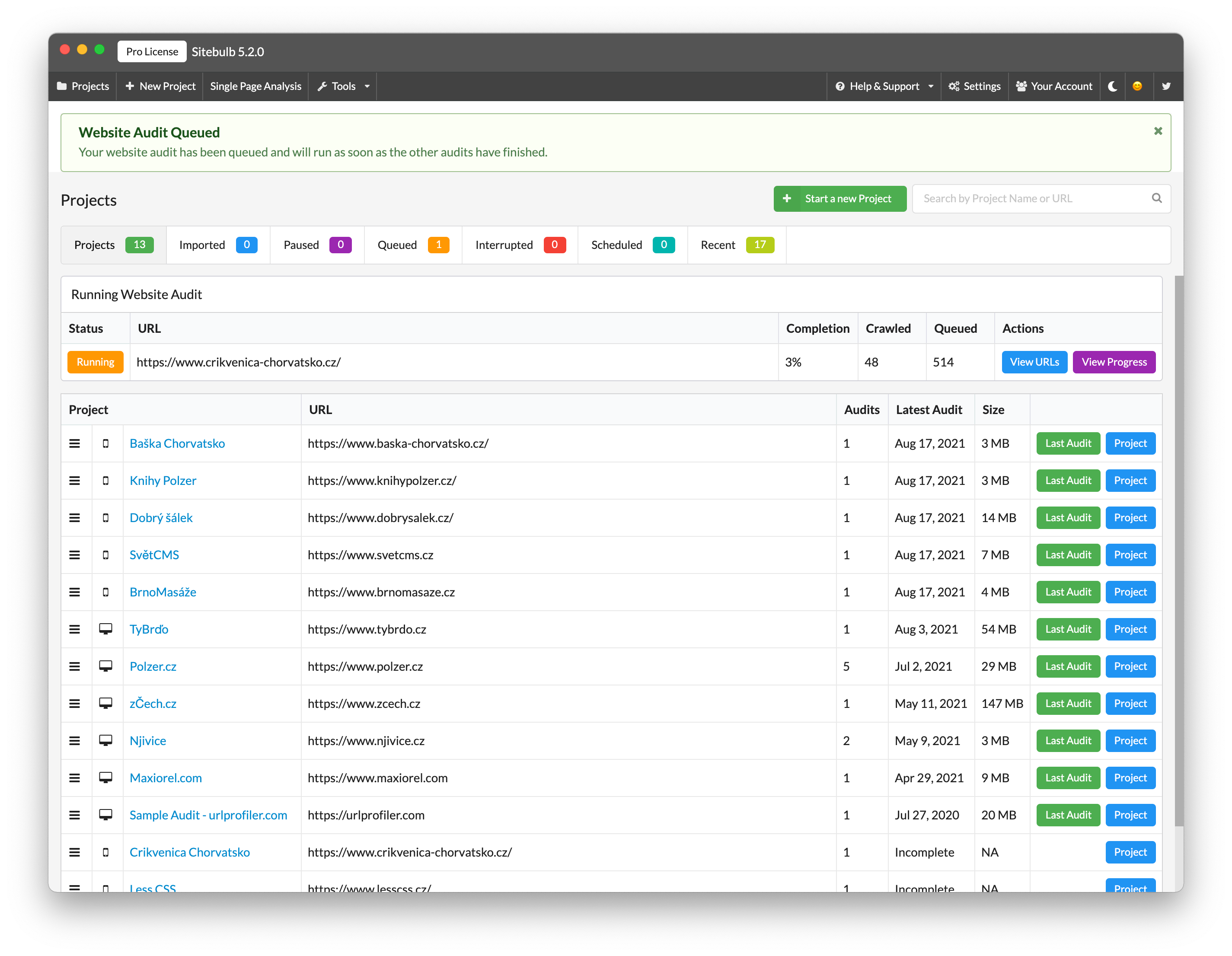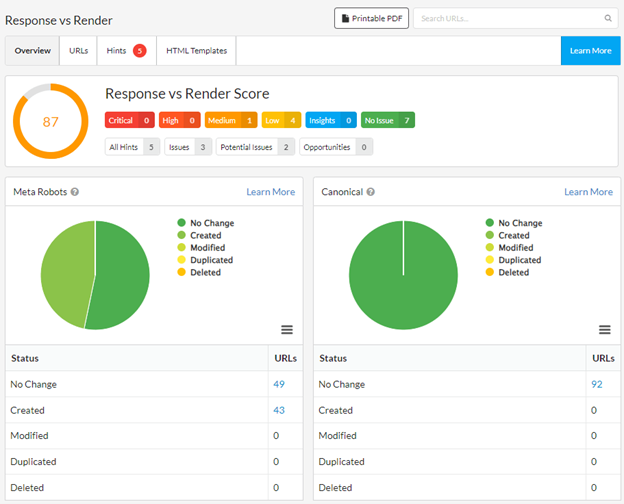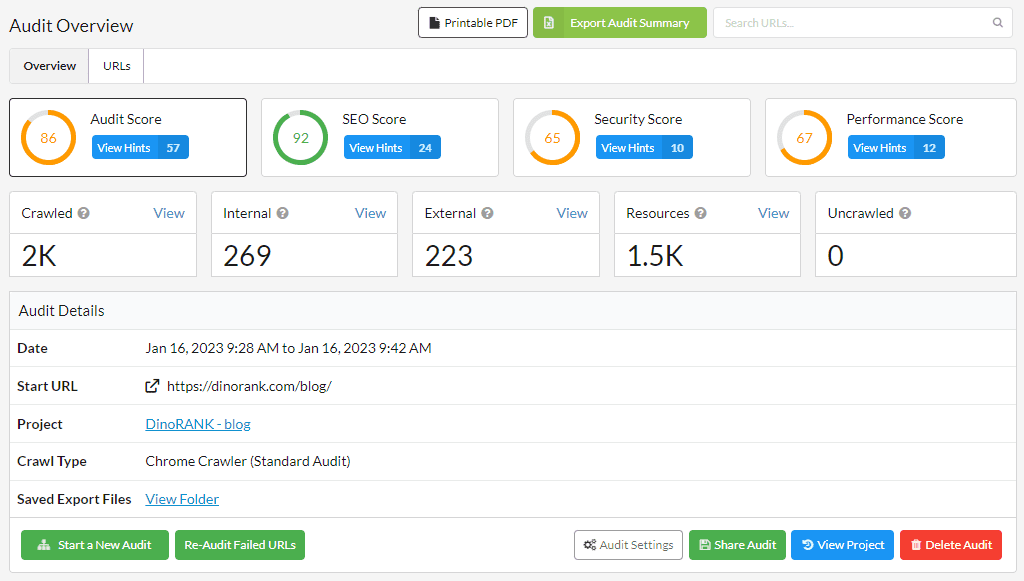Sitebulb Review: Complete SEO Audit Tool Analysis for Modern Websites

Last Updated on 12 January 2026 by Dorian Menard
Sitebulb has carved out a unique position in the SEO audit tool market by focusing on visual reporting and JavaScript rendering capabilities. This comprehensive auditing tool offers beyond the standard features found in traditional SEO tools, making it an attractive choice for agencies and SEO consulting firms. While tools like Screaming Frog remain the industry standard for technical crawling, Sitebulb provides a different approach that appeals to agencies requiring client-friendly reports and teams working with modern JavaScript-heavy websites.
A comprehensive analysis of Sitebulb’s features, pricing, and real-world performance for technical SEO audits in 2025
What Makes Sitebulb Different from Traditional SEO Tools?
Sitebulb positions itself as a visual SEO audit tool rather than a pure crawler on the market. This distinction is important because it shapes every aspect of the software’s design and functionality. Unlike traditional SEO tools that focus purely on data extraction, Sitebulb offers a comprehensive approach that includes features like advanced visualization, making it appealing to SEO agency professionals and in-house teams alike.

Sitebulb Dashboard Interface – Visual overview of site health metrics and priority issues
JavaScript Rendering Capabilities and Technical SEO Integration
One area where you can use Sitebulb to genuinely excel is JavaScript rendering. Unlike Screaming Frog, which requires additional configuration and separate tools for JavaScript analysis, Sitebulb offers native JS rendering within its crawl process. This version of Sitebulb handles modern web development requirements seamlessly, making it ideal for enterprise SEO projects dealing with complex web apps.
Technical Reality: Sitebulb’s JavaScript rendering works well for most modern websites, but it significantly impacts crawl performance. The tool can identify technical issues that traditional crawlers miss, though this comes with increased resource usage. For large sites requiring unlimited crawls, this can make audits challenging without substantial processing power.
For agencies dealing with ecommerce sites built on JavaScript frameworks, this capability provides genuine value. The integration with Google Analytics and Search Console allows for traffic-weighted prioritization, helping SEOs focus on pages that impact search visibility the most.

JavaScript Rendering Comparison View – Side-by-side comparison of raw HTML vs rendered content
Advanced Features for SEO Audit and Analytics
Sitebulb’s visual reporting represents both its greatest strength and a potential limitation. The tool generates attractive audit reports that non-technical stakeholders can understand, with actionable insights presented through an intuitive user interface. However, this focus on presentation sometimes comes at the expense of technical depth that experienced SEOs require for comprehensive onsite SEO analysis.
The visualization features include crawl depth analysis, page speed distributions, and site architecture mapping. These provide excellent overviews for client presentations, but experienced SEOs often find themselves needing to export data to CSV format for detailed analysis anyway. The tool does allow you to dive deeper into technical issues, though the data set export options are more limited than specialized crawlers.
Core Sitebulb Features for SEO Audit and Technical Analysis
How Sitebulb Offers Comprehensive Website Crawling
Sitebulb’s crawl engine handles moderate-sized sites well, supporting crawl pages functionality up to significant scale. The desktop-based crawler provides solid performance for most audit requirements, though it doesn’t match the raw speed of tools like Screaming Frog for very large sites. The cloud-based version addresses some of these limitations by offering enhanced processing power.
Advanced Crawl Configuration
Comprehensive crawl settings with depth and speed controls. The crawler identifies broken links, duplicate content, and technical SEO issues while providing real-time crawl monitoring through its web browser interface.
Real-time Analytics Integration
Live crawl statistics and progress tracking with Google Analytics integration. The interface provides actionable data while maintaining an intuitive user interface that makes complex data accessible.
Advanced Filtering and Meta Analysis
Sophisticated filtering options for focusing on specific SEO issues or page types. More intuitive than traditional crawlers while offering comprehensive meta data analysis and structured data validation.
Resource Management and Optimization
Automatic memory management that works well for typical audits. The system can optimize performance for large sites, though resource usage increases significantly with JavaScript rendering enabled.
Technical SEO Issues Detection and Analysis
Page Speed and Web Vitals Assessment
Sitebulb provides Core Web Vitals analysis as part of its comprehensive technical SEO assessment. While not as detailed as dedicated performance tools, the integration offers convenient baseline assessment for common SEO issues. The tool can benchmark page speed performance across your entire site, providing valuable insights for SEO agency reporting.
Accessibility Auditing and Schema Validation
The accessibility features go beyond standard SEO tools, offering comprehensive WCAG compliance checking. This makes Sitebulb valuable for organizations with accessibility requirements. The tool also validates structured data and schema markup, helping ensure proper search engine visibility and rich snippet eligibility.

Accessibility Audit Results – WCAG compliance overview with issue prioritization
Search Console Integration and Keyword Data Analysis
Sitebulb’s Google Analytics and Search Console integration adds genuine value by enabling traffic-weighted prioritization of technical issues. This is particularly useful for technical SEO audit services where you need to focus on high-impact pages first. The tool can correlate crawl data with actual search engine performance, providing actionable insights for SEO improvements.
The integration allows for comprehensive keyword research analysis within the audit context, helping identify opportunities where technical improvements could impact search rankings. Export capabilities include CSV format for further analysis, though the options are less comprehensive than specialized crawling tools.
Sitebulb Pricing: Desktop and Cloud Version Options
Sitebulb offers both desktop-based and cloud-based pricing models, reflecting its positioning as a premium auditing tool. The paid version provides significant value for agencies requiring professional reporting capabilities, though the investment is higher than basic crawling tools.
Desktop Version Pricing for SEO Professionals
Sitebulb Lite (Desktop)
- Up to 10,000 URLs per audit
- JavaScript rendering capabilities
- 100+ SEO hints and recommendations
- Google Analytics & Search Console integration
- Google Sheets integration for data export
- Basic crawl maps and duplicate content detection
- Single user license with email support
- Internal link analysis and broken links detection
Sitebulb Pro (Desktop)
- Up to 500,000 URLs per audit with unlimited number of projects
- 300+ comprehensive SEO hints covering common SEO issues
- Advanced configuration options for technical SEO
- Audit comparisons to track changes over time
- Scheduled automated audits with actionable insights
- Customized audit reports with white-label branding
- Accessibility auditing with full WCAG compliance
- Advanced crawl maps and visualization tools
- Priority support with dedicated account management
Cloud-Based SEO Audit Solutions
Sitebulb Cloud Mini
- 2 users with collaborative access
- 50,000 URLs per month total capacity
- Up to 50,000 URLs per individual audit
- Cloud-based processing eliminating desktop limitations
- Recurring automated audits with scheduling
- Unlimited Google Analytics and Search Console connections
- Web browser access from any device
Sitebulb Cloud Small
- 5 users with full collaboration features
- 1 million URLs per month processing capacity
- Up to 250,000 URLs per audit with enterprise SEO capabilities
- Desktop licenses included for hybrid workflow
- Unlimited projects for multi-client management
- Advanced team collaboration and data sharing
- Native desktop integration with cloud power
- Looker Studio integration for advanced reporting
Sitebulb Cloud Medium
- 10 users for larger SEO teams
- 2.5 million URLs per month for enterprise-scale audits
- Up to 1 million URLs per audit for comprehensive site analysis
- Concurrent crawling capabilities for multiple projects
- All Small plan features with enhanced processing
- Priority cloud support with dedicated resources
- Advanced analytics integration and keyword data analysis
Cost Reality Check: At $216-$5,940 annually, Sitebulb is significantly more expensive than Screaming Frog ($199/year) but offers unique features that justify the cost for specific use cases. The desktop Pro plan at $42/month represents the right choice for most SEO agencies requiring professional reporting capabilities.
Which Plan Makes Sense for Different Users?
Lite Plan Suitable For
- Small agencies with basic SEO audit requirements
- Freelance marketers working on smaller sites
- Teams focused on JavaScript-heavy sites under 10K pages
- Organizations prioritizing visual reports for my clients
- Budget-conscious users wanting premium auditing tool features
Pro Plan Required For
- SEO agencies needing branded client reports
- Teams managing larger websites requiring comprehensive analysis
- Organizations with accessibility compliance requirements
- Users needing advanced technical SEO issues identification
- Professional SEOs requiring full feature access and unlimited crawls
How Search Scope Uses Sitebulb for SEO Consulting
At Search Scope, while Screaming Frog remains our primary crawling tool, as explained in our comprehensive review, we strategically use Sitebulb for specific scenarios where its unique features add value to our comprehensive SEO audit process. This approach allows us to leverage the strengths of both tools for optimal client outcomes.
Specific Use Cases Where We Use Sitebulb
Client-Facing Audit Reports and Presentations
When clients need visual, executive-friendly audit summaries rather than raw technical data. Sitebulb’s intuitive user interface and professional visualization help communicate complex SEO issues in an accessible format. The tool excels at creating reports for my clients that focus on actionable insights rather than overwhelming technical details.
JavaScript-Heavy Sites and Web Apps Analysis
For ecommerce platforms and single-page applications where JavaScript rendering is critical for accurate analysis. We use Sitebulb to supplement our primary Screaming Frog audits when JS-related technical issues are suspected, particularly for sites with complex content marketing implementations.
Accessibility Compliance and Schema Validation Projects
When clients have specific WCAG requirements or need comprehensive structured data validation. Sitebulb’s built-in accessibility auditing provides a convenient starting point for identifying compliance issues, while its schema validation helps ensure proper search engine visibility.
Quick Visual Health Checks and Ongoing Monitoring
For rapid site health assessments where visual presentation takes priority over comprehensive technical analysis. This approach is particularly useful for initial client consultations, ongoing monitoring, and situations where we need to collaborate with non-technical stakeholders.
Integration with Primary SEO Tools and Workflow
Rather than replacing our core tools, Sitebulb serves a complementary role in our audit workflow. We typically use Screaming Frog for comprehensive technical analysis and data extraction, then leverage Sitebulb for specific scenarios requiring visual presentation or JavaScript analysis. This hybrid approach allows us to benchmark performance across different crawling methodologies.
The integration with Google Analytics provides significant value for prioritizing issues based on actual traffic data and pageviews. This helps focus client attention on high-impact optimizations that will most effectively improve search visibility and user experience.
SEO Tools Comparison: Practical Assessment
Screaming Frog and Sitebulb: Honest SEO Tools Comparison
While both tools serve the SEO audit market, they address different needs and user types. At Search Scope, we’ve found that Screaming Frog remains superior for comprehensive technical analysis, while Sitebulb offers advantages in specific scenarios requiring visual reporting and JavaScript analysis capabilities.
When to Use Sitebulb Over Traditional SEO Tools
Choose Sitebulb when conducting comprehensive SEO audits where:
- Client presentation requirements prioritize visual appeal and actionable insights
- JavaScript rendering is essential and you lack expertise to configure traditional crawlers
- Accessibility compliance auditing is a regular requirement for your client base
- Team members need an easier learning curve than complex technical tools provide
- Budget allows for premium pricing in exchange for enhanced user experience and convenience
- You need to share data easily with non-technical stakeholders or collaborate across teams

Performance Comparison Chart – Crawl speed and accuracy comparison across different site types
Why Screaming Frog Remains Our Primary Choice
Despite Sitebulb’s unique features, Screaming Frog continues to be our go-to tool for several important reasons related to technical depth and cost efficiency:
| Comparison Factor | Screaming Frog | Sitebulb | Advantage |
|---|---|---|---|
| Annual Cost | $199 | $216-$504 | Screaming Frog |
| Crawl Speed Performance | Very fast with minimal resource usage | Moderate speed, slower with JS rendering | Screaming Frog |
| Data Export and CSV Options | Comprehensive export capabilities | Basic export with limited formatting | Screaming Frog |
| JavaScript Rendering | Requires manual configuration | Native support with automatic detection | Sitebulb |
| Visual Reporting and Audit Reports | Minimal visualization options | Excellent visual reports with branding | Sitebulb |
| Learning Curve for New Users | Steep learning curve for beginners | Moderate learning curve with intuitive interface | Sitebulb |
| Technical Depth and Analysis | Excellent comprehensive analysis | Good analysis with visual presentation | Screaming Frog |
| Accessibility Testing and Compliance | Limited accessibility features | Comprehensive WCAG compliance checking | Sitebulb |
This is how to use the Sitebulb website crawler.
Sitebulb Limitations and Common SEO Issues
Real-World Performance Issues and Technical Limitations
After extensive testing across various client projects, several limitations become apparent with regular Sitebulb usage, particularly when dealing with enterprise SEO requirements:
❌ Significant Limitations to Consider
- Higher cost compared to basic crawling tools, though gap has narrowed significantly
- JavaScript rendering can dramatically impact crawl performance and resource usage
- Limited data export options compared to specialized crawlers and CSV formatting
- Resource intensive requirements for large-scale audits without cloud infrastructure
- Less comprehensive for advanced technical SEO issues requiring deep dive analysis
- Fewer customization options than established crawlers for specialized use cases
- Smaller community support and educational resources compared to industry standards
✅ Practical Workarounds and Solutions
- Use selectively as part of a comprehensive SEO tools suite rather than sole solution
- Disable JavaScript rendering when not essential to optimize performance
- Supplement with dedicated tools for comprehensive technical analysis and keyword research
- Focus on smaller site sections for detailed audits to manage resource constraints
- Leverage free trial period to assess value and ROI before long-term commitment
- Consider cloud version for resource-intensive audits requiring unlimited number processing
Resource Reality Check: Large site audits with JavaScript rendering enabled can consume 8GB+ RAM and take significantly longer than traditional crawling. This makes Sitebulb impractical for many enterprise-scale audits without substantial hardware investment or cloud infrastructure. The tool performs best as part of a balanced SEO toolkit rather than a standalone solution.
This is how to conduct, structure and communicate technical SEO audits.
Industry Reception and SEO Community Feedback
Sitebulb has received generally positive feedback from the SEO community, particularly from agencies focused on client presentation and teams working with modern web development technologies. However, reception is more mixed among technical SEO professionals who prioritize analytical depth over visual presentation.
Community Sentiment Analysis and User Experience
Based on extensive feedback from SEO forums, industry surveys, and user reviews, Sitebulb receives praise for its user experience and comprehensive visual reporting capabilities. However, criticism typically focuses on cost-benefit analysis and performance limitations. Many users appreciate it as a valuable supplementary tool but few consider it a complete replacement for established crawlers in their SEO toolkit.
Critical feedback often centers on the tool’s positioning and value proposition. While the advanced features are generally well-regarded, many smaller operations find it challenging to justify the premium pricing for capabilities they use infrequently. The consensus suggests it works best for teams that can fully leverage its unique strengths.
A review of the Sitebulb SEO tool.
Final Verdict: Should You Choose This SEO Audit Tool?
Sitebulb occupies a specific niche in the SEO tools ecosystem. It’s not a universal solution, nor is it intended to be. The tool excels in scenarios requiring visual presentation, JavaScript analysis, and comprehensive reporting, but it doesn’t completely replace the need for specialized technical crawling capabilities in most professional SEO workflows.
Honest Assessment: Sitebulb has become significantly more accessible with its $18/month Lite plan, making it a viable supplementary tool for more agencies and SEO professionals. However, it’s still not the most cost-effective choice as a primary crawling solution for most SEO practitioners, and it shouldn’t be considered a complete replacement for established tools like Screaming Frog in comprehensive SEO auditing.
The tool represents the right choice for:
- SEO agencies regularly presenting audit findings to non-technical clients and stakeholders
- Teams working primarily with JavaScript-heavy websites requiring specialized rendering capabilities
- Organizations with specific accessibility compliance requirements and schema validation needs
- Users who prioritize ease of use and visual presentation over raw technical depth
- Teams with budget flexibility who value convenience, user experience, and professional reporting quality
- SEO consulting firms needing to collaborate effectively across technical and non-technical team members
For most SEO professionals, particularly those focused on technical depth and cost efficiency, traditional tools remain the better primary choice. However, Sitebulb can provide valuable complementary capabilities in a comprehensive SEO toolkit, and with more reasonable pricing, it’s become more justifiable as a specialized tool for specific use cases and client requirements.
The decision ultimately depends on your specific needs, budget constraints, and client requirements. Sitebulb delivers effectively on its promises of visual reporting, JavaScript analysis, and user-friendly audit capabilities. The pricing has become more competitive, making it worth serious consideration for agencies that can leverage its unique strengths in client communication and modern web analysis.